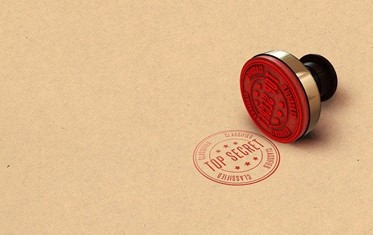
Mistakes to Avoid as a Halal-Certified Business
1. Choosing the Wrong Certifier
Finding a Halal certifier can feel overwhelming – there are many companies world-wide offering a range of services. The most important considerations are choosing a certifier that is highly reputable, experienced and able to certify the type of products you offer.
Not all Halal certifiers are equally well-known or respected. Like any service, there is variability in knowledge, thoroughness, price, and reliability of Halal certifiers. Look for an established certifier with many years of experience and satisfied clients, like ISA. You’ll also want to find a certifier who is transparent with you about all aspects of the process, including pricing, documentation requirements, and inspections. ISA strives for openness and honesty when working with its clients to ensure the best possible outcome for you and your customers.

It also matters what consumers think, since many Halal-certified products are sold direct-to-consumer and depend on their recognition and acceptable of the certification. ISA is a globally known and respected with consumers, ensuring that your product will stand out.
2. Choosing an Appropriate Certifier for Your Product and Region
Not all certifiers are equipped to certify every type of product. Each will have their own specialty area, and some are limited in their overseas reach and country approval status. Contact us and we will work with you to ensure that your unique certification needs are met.
In addition, not all Halal certifications are accepted in every country. For example, Malaysia has particularly strict Halal standards for all imported food, and a limited list of approved Halal certification companies that it has deemed acceptable, including ISA. In order to sell your product in Malaysia, you’ll need to receive your certification from ISA or another approved certifier.

3. Changing ingredient suppliers without informing and confirming with your Halal Certifier
Halal certification carefully reviews all product ingredients used and the manufacturing steps from the raw material stage to final packaging.
Thus, if your business uses ingredients supplied by another business, those products may also need to be Halal-certified or otherwise deemed acceptable. Switching to a supplier that isn’t certified or who uses unacceptable sub ingredients or practices can negate the Halal status of your own products.
Even if your new supplier is acceptable, your certifier must be able to verify the details and maintain the proper documentation records in order to support and maintain your Halal product compliance requirements.

4. Withholding information
Halal certification requires teamwork between you and your certifying agency. ISA wants you to be able to receive and proudly display a Halal seal on your products, and they can help you get there. But in order to do that, ISA must receive all required and relevant information.
ISA takes privacy very seriously, and never reveal proprietary recipes or trade secrets. Make sure the product review and facility audit inspections run smoothly to reduce or eliminate potential corrective action findings that can stall your new and ongoing certification status.

5. Renewing Your Halal Certification
Just like other certifications such as Organic, Halal Certifications need to be renewed – they do not confer a permanent Halal status. If your annual calendar year certification expires and lapses, you can no longer claim and display a Halal Certified seal on your products and facilities. Suppliers, ingredients, and processes change over time for many businesses, and your Halal certifier needs to be sure that your business is still adhering to the same standards as when your original and renewal certification was granted. This also gives consumers additional assurance that Halal-certified products are routinely audited and re-confirmed as meeting the necessary standards.
The period of validity varies between suppliers and products. ISA Halal Certifications are valid from January 1 through December 31 of each year and prorated from the time the initial certification was completed through the end of the current year. The renewal process begins several months before your annual certification expiration date to allow for payments to be budgeted, processed and paid and then to receive your new certificate in advance of the upcoming year and to avoid any gaps in your status.
